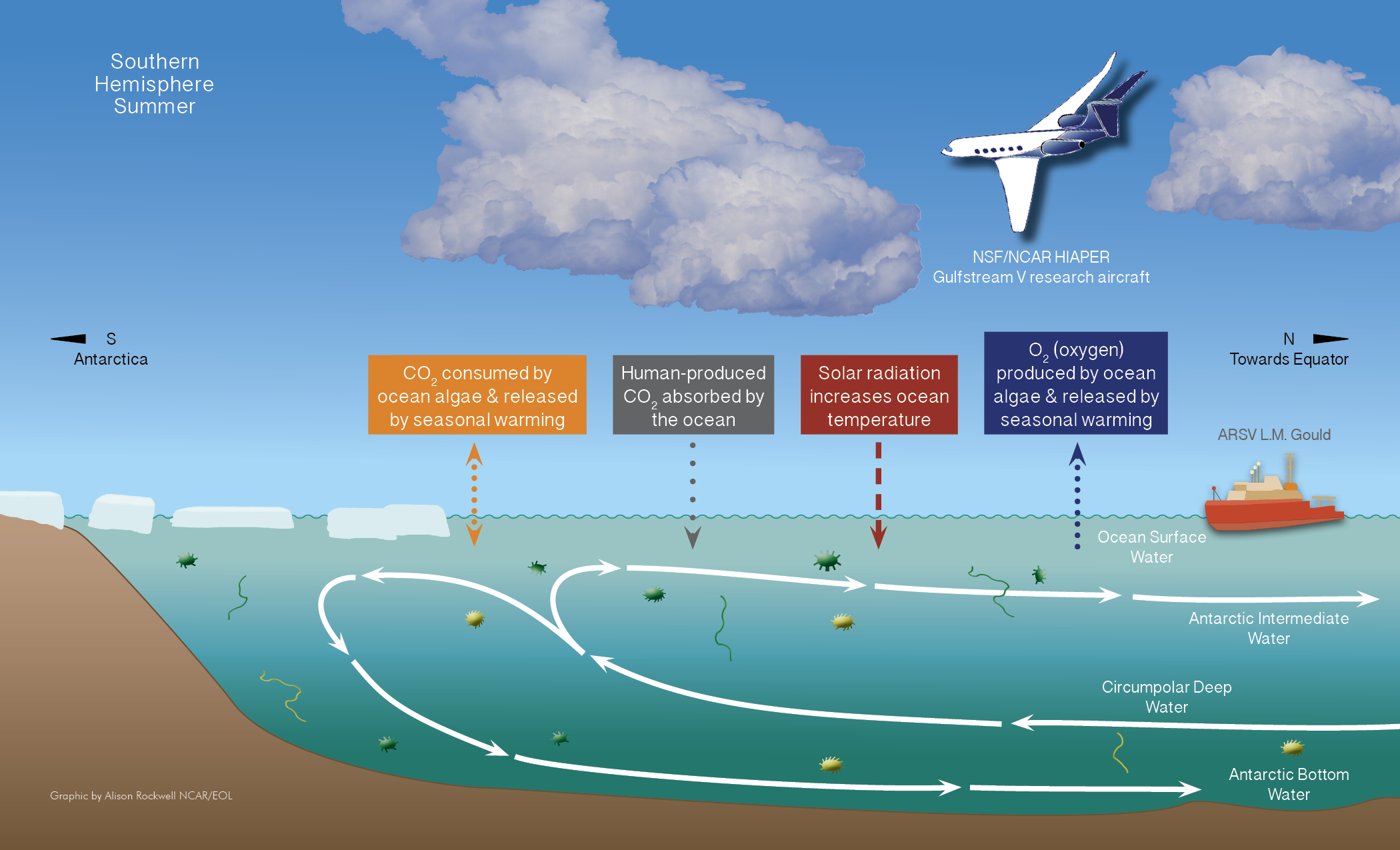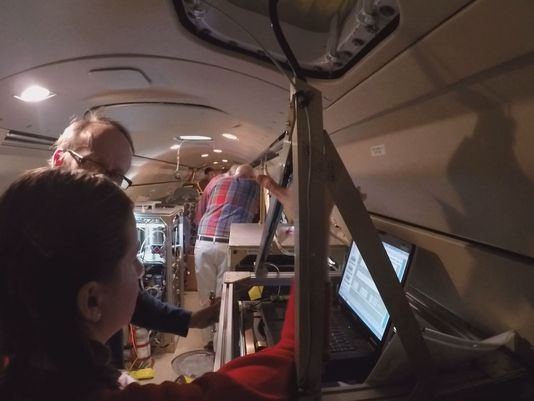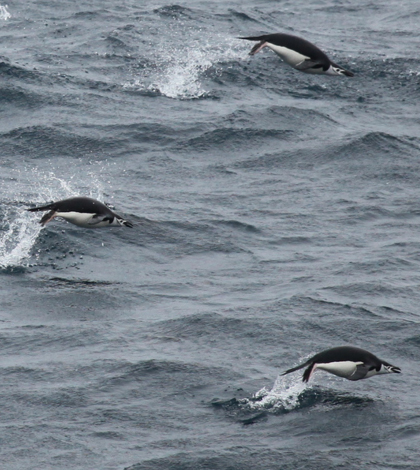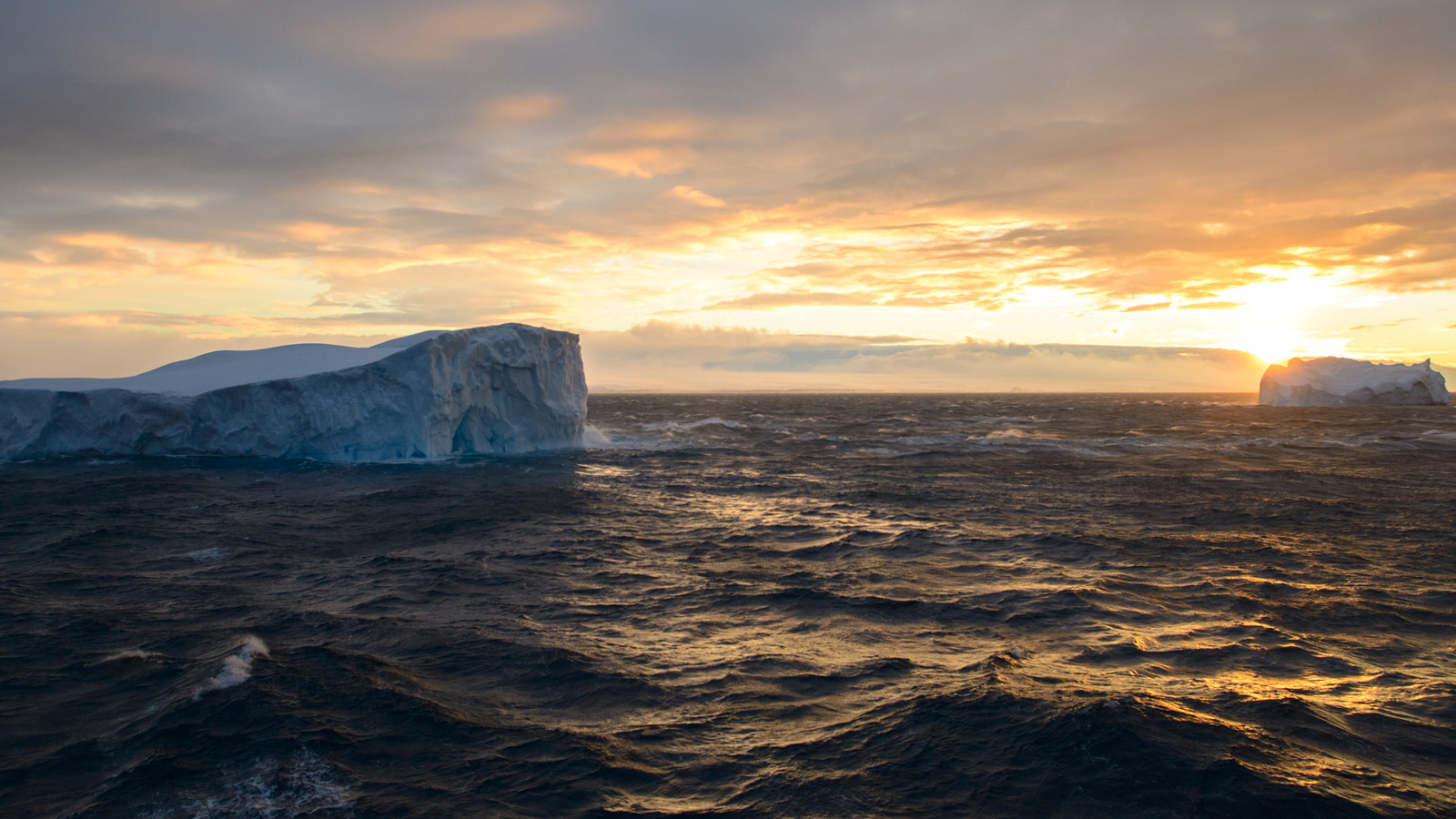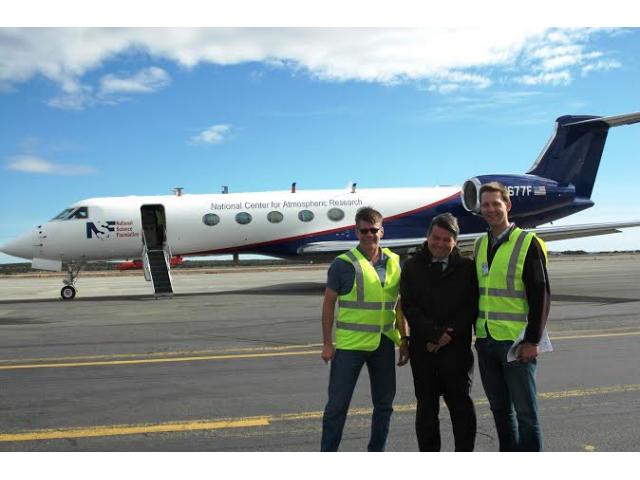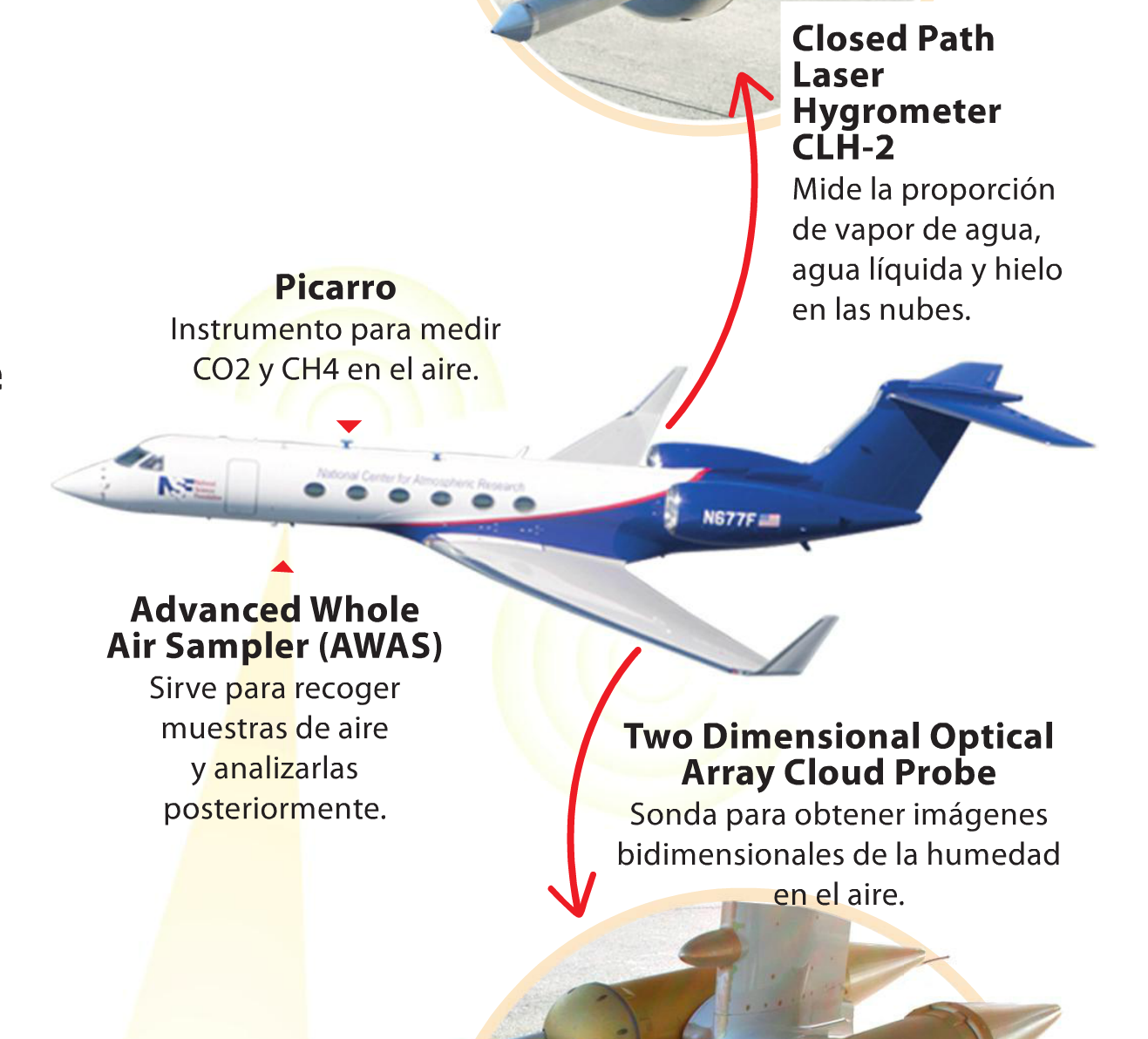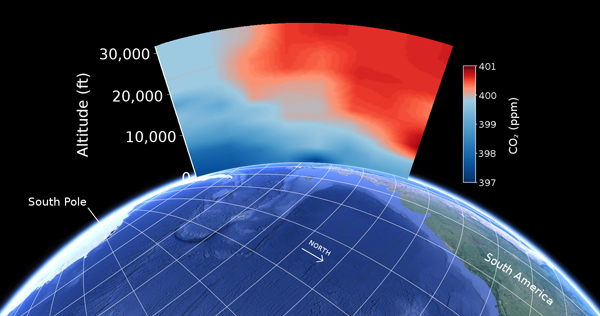AIRCRAFT REVEAL A SURPRISINGLY STRONG SOUTHERN OCEAN CARBON SINK
2 December 2021 New study relies on airborne measurements of carbon dioxide to estimate ocean uptake
Study sheds light on Antarctic Ocean climate riddle
06 December 2021
A CO2 Milestone in Earth's History - Antarctic field project captures 400 ppm levels
AtmosNews | 12 May 2016
 Earth’s atmosphere is crossing a major threshold, as high levels of carbon dioxide (CO2)—the leading driver of recent climate change—are beginning to extend even to the globe's most remote region. Scientists flying near Antarctica this winter captured the moment with airborne CO2 sensors during a field project to better understand the Southern Ocean's role in global climate.
Earth’s atmosphere is crossing a major threshold, as high levels of carbon dioxide (CO2)—the leading driver of recent climate change—are beginning to extend even to the globe's most remote region. Scientists flying near Antarctica this winter captured the moment with airborne CO2 sensors during a field project to better understand the Southern Ocean's role in global climate.
» Read more
Súper avión investiga por qué mar antártico genera tanto oxígeno
 Los otros 9 instrumentos que trajeron los científico gringos
Los otros 9 instrumentos que trajeron los científico gringos
lun.com | 09 Feb 2016
» Read more
Ministro (s) del Medio Ambiente se reúne con científicos norteamericanos que estudian rol de océanos australes en captura de carbono
Ministerio del Medio Ambiente | 08 February 2016
 Marcelo Mena, Minister (S) Environmental, traveled to the city of Punta Arenas, to see the work being done by scientists from NASA and the National Center for Atmospheric Research in the United States who are studying the role of the oceans austral in the exchange of oxygen and carbon dioxide, and its effects on climate change.
Marcelo Mena, Minister (S) Environmental, traveled to the city of Punta Arenas, to see the work being done by scientists from NASA and the National Center for Atmospheric Research in the United States who are studying the role of the oceans austral in the exchange of oxygen and carbon dioxide, and its effects on climate change.
» Read more
MINISTRO (S) DEL MEDIO AMBIENTE VISITA AVIÓN DEL CENTRO DE ESTUDIOS ATMOSFÉRICOS DE ESTADOS UNIDOS
Radiopolar.com | 05 Feb 2016
 Un verdadero laboratorio en el aire, es el que están utilizando catorce científicos, quienes a bordo de un avión de la NASA, están estudiando las emisiones de dióxido de carbono (CO₂) y los lugares y elementos que lo absorben en el océano, con el objetivo de ver el efecto de éstos sobre el clima.
Un verdadero laboratorio en el aire, es el que están utilizando catorce científicos, quienes a bordo de un avión de la NASA, están estudiando las emisiones de dióxido de carbono (CO₂) y los lugares y elementos que lo absorben en el océano, con el objetivo de ver el efecto de éstos sobre el clima.
» Read more
Nasa and other participants study carbon dioxide absorption capacity of Antarctica
Aerospace-Technology.com | 27 January 2016
 A team of scientists led by the US National Center for Atmospheric Research (NCAR) is undertaking research on the capacity of the Southern Ocean to absorb carbon dioxide. Nasa and other participants are carrying out research flights over the remote seas in Antarctica to understand how oxygen and carbon dioxide are exchanged between the air and the Southern Ocean.
A team of scientists led by the US National Center for Atmospheric Research (NCAR) is undertaking research on the capacity of the Southern Ocean to absorb carbon dioxide. Nasa and other participants are carrying out research flights over the remote seas in Antarctica to understand how oxygen and carbon dioxide are exchanged between the air and the Southern Ocean.
» Read more
NASA Takes Part in Airborne Study of Southern Ocean
Jet Propulsion Laboratory | 26 January 2016
 A team of scientists has launched a series of research flights over the remote seas surrounding Antarctica in an effort to better understand how much carbon dioxide the icy waters are able to lock away.
A team of scientists has launched a series of research flights over the remote seas surrounding Antarctica in an effort to better understand how much carbon dioxide the icy waters are able to lock away.
»Read more
ORCAS Campaign Studies Southern Ocean Carbon
Environmental Monitor | 15 January 2016
 The Southern Ocean is special among the world’s oceans. Unchecked by large landmasses and driven by westerly winds, the ocean is able to form a circular flow around Antarctica, making up what is the planet’s largest current.
The Southern Ocean is special among the world’s oceans. Unchecked by large landmasses and driven by westerly winds, the ocean is able to form a circular flow around Antarctica, making up what is the planet’s largest current.
» Read more
Colo. scientists to study South Pole ocean in flying lab
9News | 11 January 2016
 Inside a jet in Broomfield, science is about to go airborne. In the weeks leading up to now, scientists from the National Center for Atmospheric Research in Boulder have been busy getting ready to head to one of the most inhospitable areas of the world.
Inside a jet in Broomfield, science is about to go airborne. In the weeks leading up to now, scientists from the National Center for Atmospheric Research in Boulder have been busy getting ready to head to one of the most inhospitable areas of the world.
» Read more
Flying Lab to Investigate Southern Ocean's Appetite for Carbon
AtmosNews | 5 January 2016
 A team of scientists is launching a series of research flights this month over the remote Southern Ocean in an effort to better understand just how much carbon dioxide the icy waters are able to lock away. The ORCAS field campaign—led by the National Center for Atmospheric Research (NCAR)—will give scientists a rare look at how oxygen and carbon dioxide are exchanged between the air and the seas surrounding Antarctica. The data they collect will help illuminate the role the Southern Ocean plays in soaking up excess carbon dioxide emitted into the atmosphere by humans.
A team of scientists is launching a series of research flights this month over the remote Southern Ocean in an effort to better understand just how much carbon dioxide the icy waters are able to lock away. The ORCAS field campaign—led by the National Center for Atmospheric Research (NCAR)—will give scientists a rare look at how oxygen and carbon dioxide are exchanged between the air and the seas surrounding Antarctica. The data they collect will help illuminate the role the Southern Ocean plays in soaking up excess carbon dioxide emitted into the atmosphere by humans.
» Read more
Letter from the Project Manager
ORCAS Digital Camera Imagery and Movie Notes
NCAR / Scripps Airborne Flask Sampler
